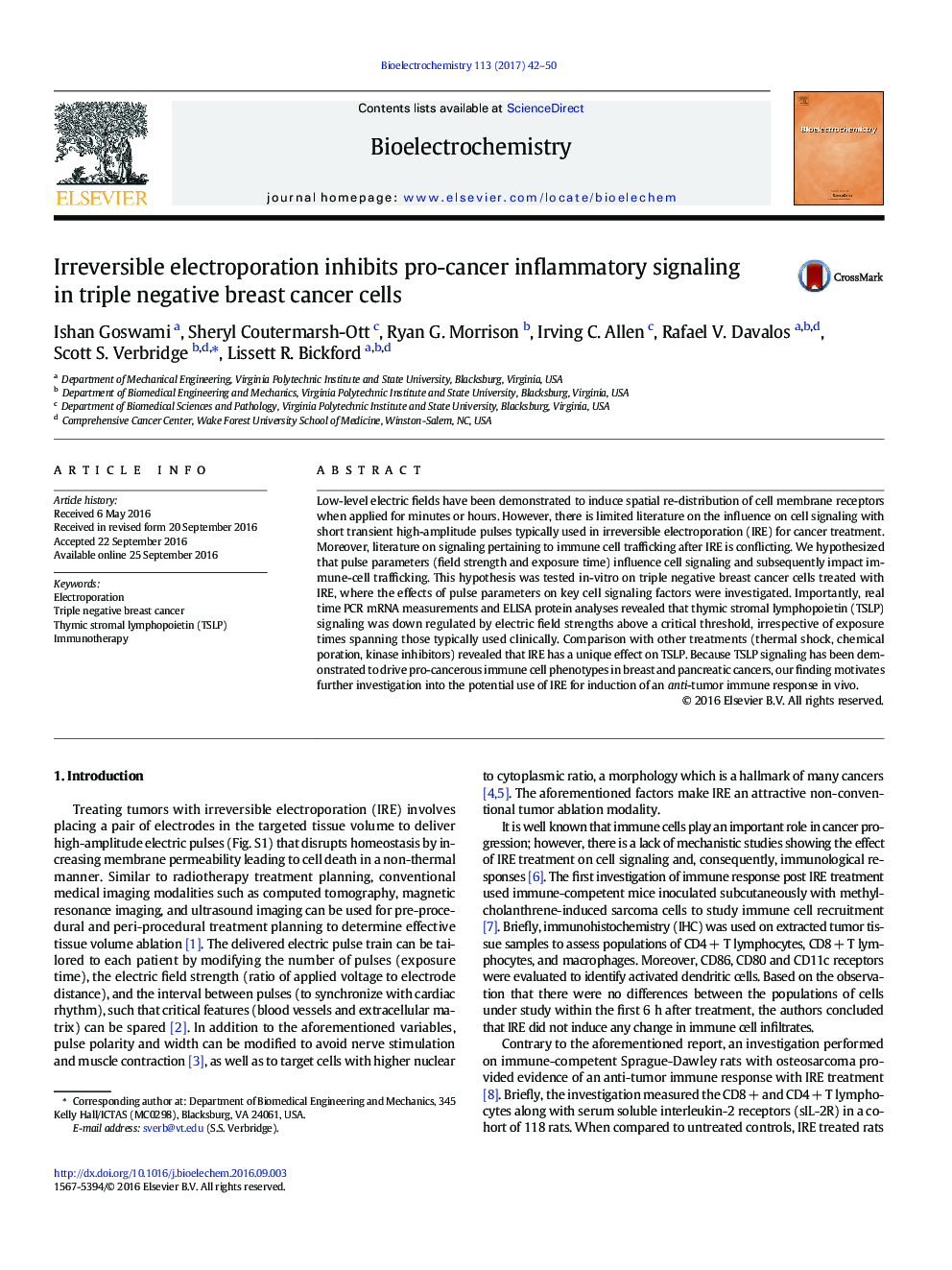| Article ID | Journal | Published Year | Pages | File Type |
|---|---|---|---|---|
| 7704794 | Bioelectrochemistry | 2017 | 9 Pages |
Abstract
Low-level electric fields have been demonstrated to induce spatial re-distribution of cell membrane receptors when applied for minutes or hours. However, there is limited literature on the influence on cell signaling with short transient high-amplitude pulses typically used in irreversible electroporation (IRE) for cancer treatment. Moreover, literature on signaling pertaining to immune cell trafficking after IRE is conflicting. We hypothesized that pulse parameters (field strength and exposure time) influence cell signaling and subsequently impact immune-cell trafficking. This hypothesis was tested in-vitro on triple negative breast cancer cells treated with IRE, where the effects of pulse parameters on key cell signaling factors were investigated. Importantly, real time PCR mRNA measurements and ELISA protein analyses revealed that thymic stromal lymphopoietin (TSLP) signaling was down regulated by electric field strengths above a critical threshold, irrespective of exposure times spanning those typically used clinically. Comparison with other treatments (thermal shock, chemical poration, kinase inhibitors) revealed that IRE has a unique effect on TSLP. Because TSLP signaling has been demonstrated to drive pro-cancerous immune cell phenotypes in breast and pancreatic cancers, our finding motivates further investigation into the potential use of IRE for induction of an anti-tumor immune response in vivo.
Keywords
Related Topics
Physical Sciences and Engineering
Chemistry
Electrochemistry
Authors
Ishan Goswami, Sheryl Coutermarsh-Ott, Ryan G. Morrison, Irving C. Allen, Rafael V. Davalos, Scott S. Verbridge, Lissett R. Bickford,
